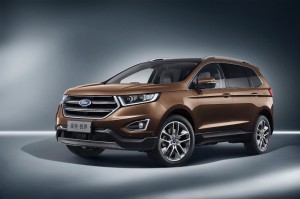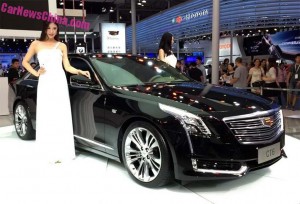The timing of the Chinese New Year and a tax hike took a heavy toll on new vehicle sales in China during January.
Both General Motors and Ford Motor Co., which finished 2016 with a jump in sales, saw their sales decline as the New Year celebration shut down businesses of all kinds across China.
General Motors and its joint ventures sales declined 24% due to the earlier Spring Festival holiday and reduction in the vehicle purchase tax incentive, GM said in a statement.
“We are seeing strong growth momentum with Cadillac as we continue to build our product line-up in the fast-growing luxury segment,” said GM Executive Vice President and GM China President Matt Tsien.
“We are well positioned to meet the demand from consumers for higher-end vehicles. As a result, we expect 2017 to be another year of positive results,” he said.
(Struggling in America, China carries Cadillac into the future. Click Here for the story.)
Cadillac continued its strong sales growth with its best-ever monthly deliveries. The recently launched new-generation GL8 led Buick’s MPV sales to an all-time monthly record.
Ford Motor said on Thursday that its sales fell 32% year-on-year, and when paired with GM’s 24% slide, it was the biggest drop since the two automakers first began reporting data for retail sales of their vehicles in China in the second quarter of 2015.
(GM plans to launch 18 new models in China in 2017. Click Here for the story.)
“January was an unusual month with the earlier timing of the Chinese New Year holiday and the impact of the reduced tax incentive,” Ford said in a statement citing Peter Fleet, head of sales for Asia Pacific. “Sales of vehicles not affected by the tax incentive were strong.”
Overall vehicle sales in China dropped for the first time in 11 months roll back of a tax cut on vehicles with small displacement engines and the Lunar New Year holiday bit deep in a market where sales are expected to fall this year after several years of steady growth.
(To see more about GM getting caught up in Trump, China dispute, Click Here.)
China’s central government has raised the purchase tax on cars with engines of 1.6 liters or less to 7.5% this year from a special rate of 5% last year, a policy originally instituted to shore up sales in a weakening economy. It plans to return the rate to 10% in 2018.


